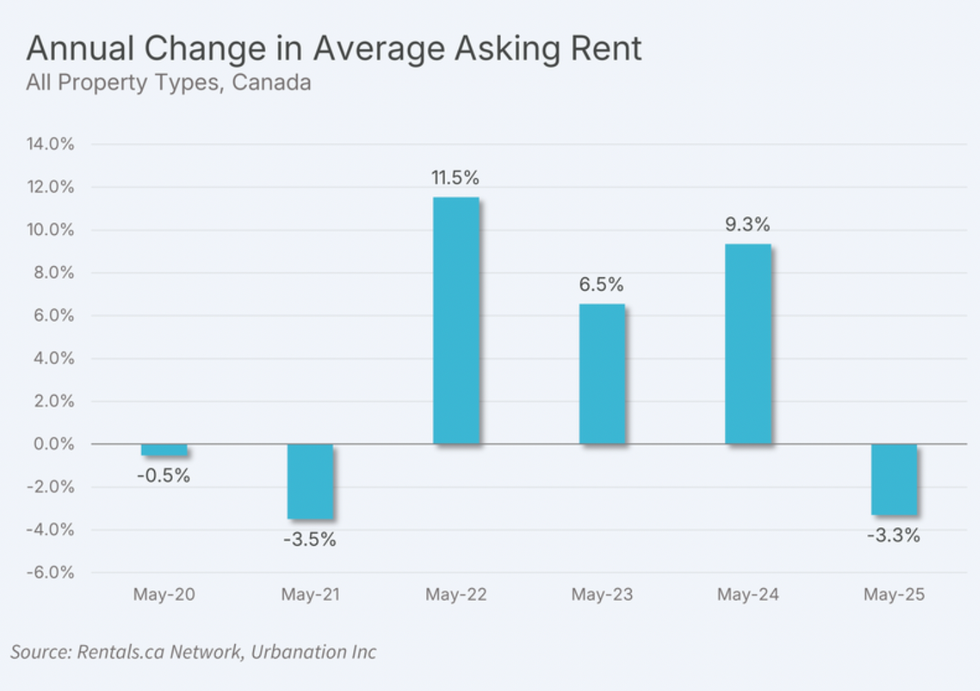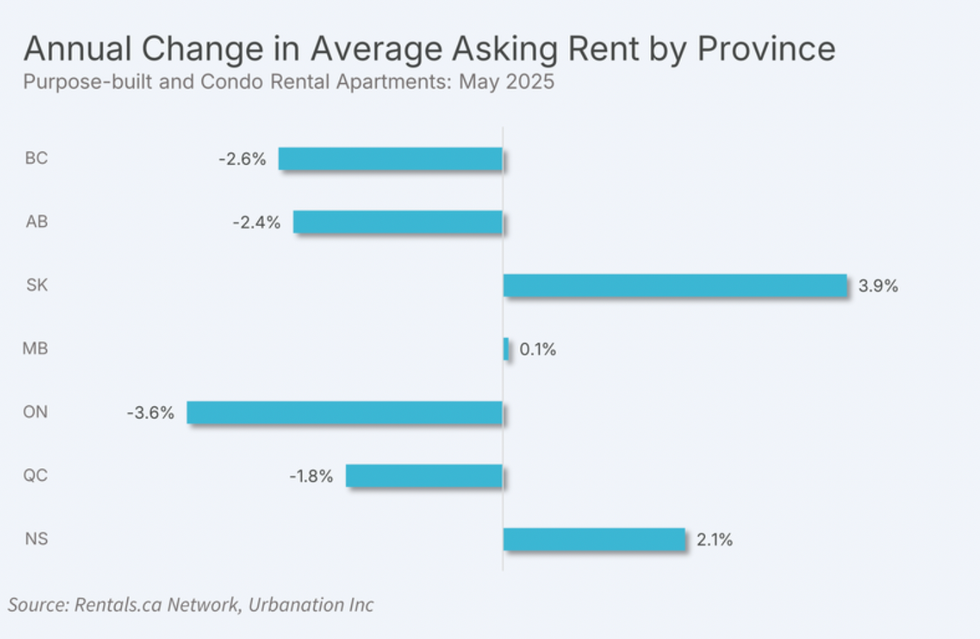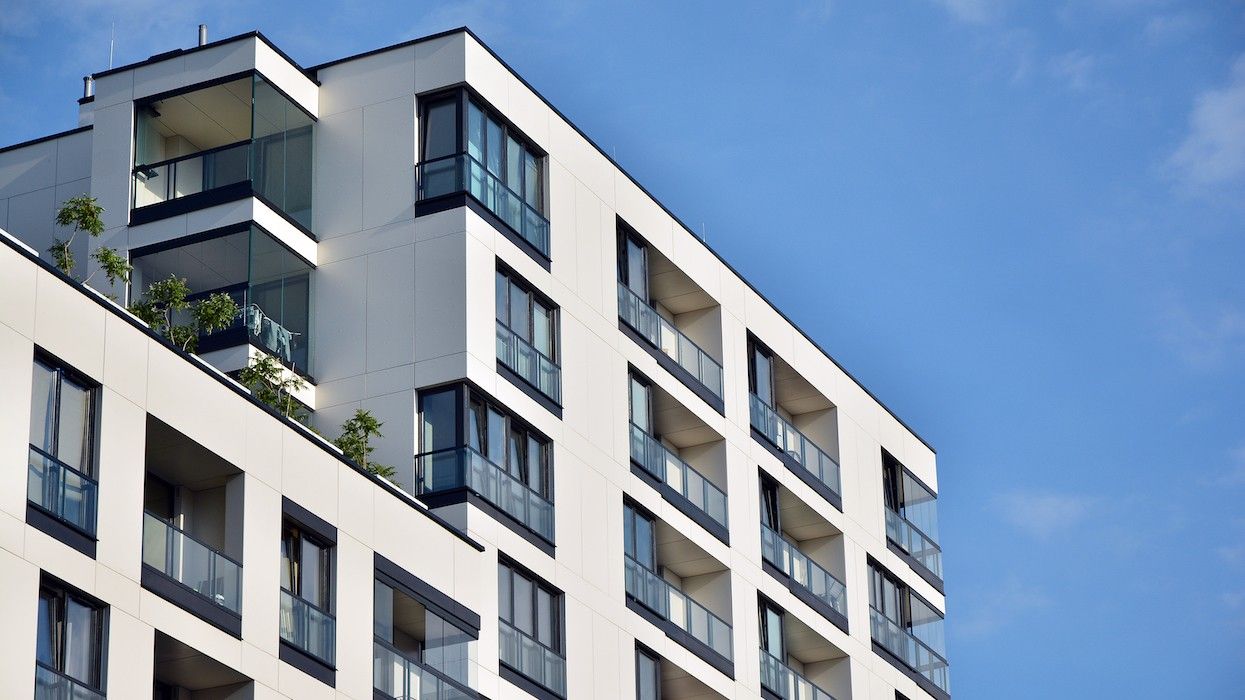May marked the eighth consecutive month of year-over-year decline in average asking rent in Canada, but the latest National Rent Report from Rentals.ca and Urbanation highlights that rents remain historically high.
By the end of last month, the asking average had fallen 3.3% to $2,129 from last May's record high of $2,202. However, rents are still 5.7% higher now than they were two years ago, and 12.6% higher than they were three years ago.
The steady rent decline we're seeing now is a market correction following the historic rent growth seen following the COVID-19 pandemic. In fact, the report points out that rents have grown by 4.1% annually over the last five years, while average annual wage growth has only been around 3%.

“The easing in rents this year across most parts of the country is a positive for housing affordability in Canada following a period of extremely strong rent inflation lasting from 2022 to 2024,” said Urbanation President Shaun Hildebrand in a press release. “Rents have recently been impacted by the combination of a surge in supply from new apartment completions, as well as a slowdown in population growth and a heightened level of economic uncertainty.”
When it comes to property types, rents for units in houses and townhomes saw the largest decline on an annual basis in May, falling 7%, while condo units fell 3.6% and purpose-built rentals dipped 2%. Month over month, national rent held steady from April, increasing just 0.1% and was driven by condo rentals, which saw rates grow 0.8% to $2,192. Condos were followed by house and townhome rentals, which rose 0.3% to $2,196, and purpose-built rentals, which slid 0.1% to $2,117. Meanwhile, average asking rent for shared accommodations declined 4.7% annually to $945.

Zooming in, three-bedroom purpose-built apartments continued to win demand, posting a 3.9% year-over-year jump to $2,743. Conversely, three-bedroom condo units saw rents for that unit type dip by 0.8%, while condo studios posted the largest decline of 5.1% to $1,762.
Geographically, Saskatchewan saw some of the most marked rent growth at 3.9%, followed by Nova Scotia at 2.1% and Manitoba at 0.1%. And though they still boast the highest rents in the country, prices continued to decline in Ontario and BC in May, by 3.6% and 2.6%, respectively.

Out of Canada's largest cities, Edmonton saw the most substantial growth at 0.7%, but Ottawa took the cake in May, posting rent increases across all unit types and an average growth rate of 0.4%. Rents weakened the most in Calgary last month, falling 7.9% to $1,928, followed by Toronto, which saw rents decrease 6.8% to $2,594, and Vancouver, where rents fell 5.9% to $2,830.
- National Average Rent Sees 6th Straight Annual Decline In March ›
- Average Canadian Rent Reaches A Five-Month High In April ›
- Recent Immigration Cuts Could Lower Rents, Shrink Housing Supply Gap ›
- One-Third Of Canadian Renters Don't Have Plans To Buy A Home ›
- Average Canadian Rent Down For Ninth Consecutive Month ›





















